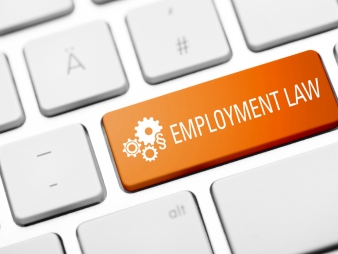The Department of Labor’s (DOL) rule increasing the threshold salary for the executive, administrative and professional employee overtime exemptions (called the “EAP Exemption” or “White-Collar Exemption”) has been struck down in its entirety nationwide by a federal court on Friday, November 15, 2024.
This rule has had employers across the country scrambling to evaluate the positions and salaries of millions of employees previously classified as exempt. Before the New Rule, the salary threshold for employees otherwise meeting the job-duties requirements of the EAP Exemption was $684 per week (or $35,568 annually). Back in April 2024, the DOL’s Final Rule increased the salary requirement to $844 per week ($43,888 annually) beginning July 1, 2024, then to $1,128 per week ($58,656 annually) on January 1, 2025, with further automatic increases to begin every three years with the first increase occurring on July 1, 2027.
But on Friday, November 15th, the U.S. District Court for the Eastern District of Texas struck down the Final Rule nationwide, not just putting a stop to the future increases set to take place on January 1, 2025, and every three years thereafter, but also striking down the July 1, 2024, requirement that had already taken effect.
While this certainly means that employers do not have to meet the further DOL salary increases for January 1, 2025, it does not automatically undo salary increases that employers have already implemented or promised to implement. While employers are no longer required to meet the July 1, 2024 increase under the DOL Rule, employers should not just simply roll back salary increases that have already been implemented or promised. Instead, employers should consult their legal counsel as to (a) when, if at all, a roll-back can be implemented, (b) whether there are any state thresholds that still must be met, (c) whether there are notice requirements, and (d) whether any promises have been made to employees that must be honored before a change can be implemented. Employers must also consult with their human resources department as any salary rollbacks will be a major blow to employee morale.
Further, the DOL could still appeal the ruling. While it is unlikely that the Trump Administration will pursue the legal battle to uphold the increases in their current form, it is possible that new leadership might reformulate and seek to adopt a less dramatic form of the rule. So, after all of the changes that employers now might want to undo, it might be wise to wait until the final outcome before implementing even more changes that might have to be undone later as well. Don’t hesitate to get in touch with your Critchfield attorney with questions.
Tagged In:Employment & LaborOvertime






